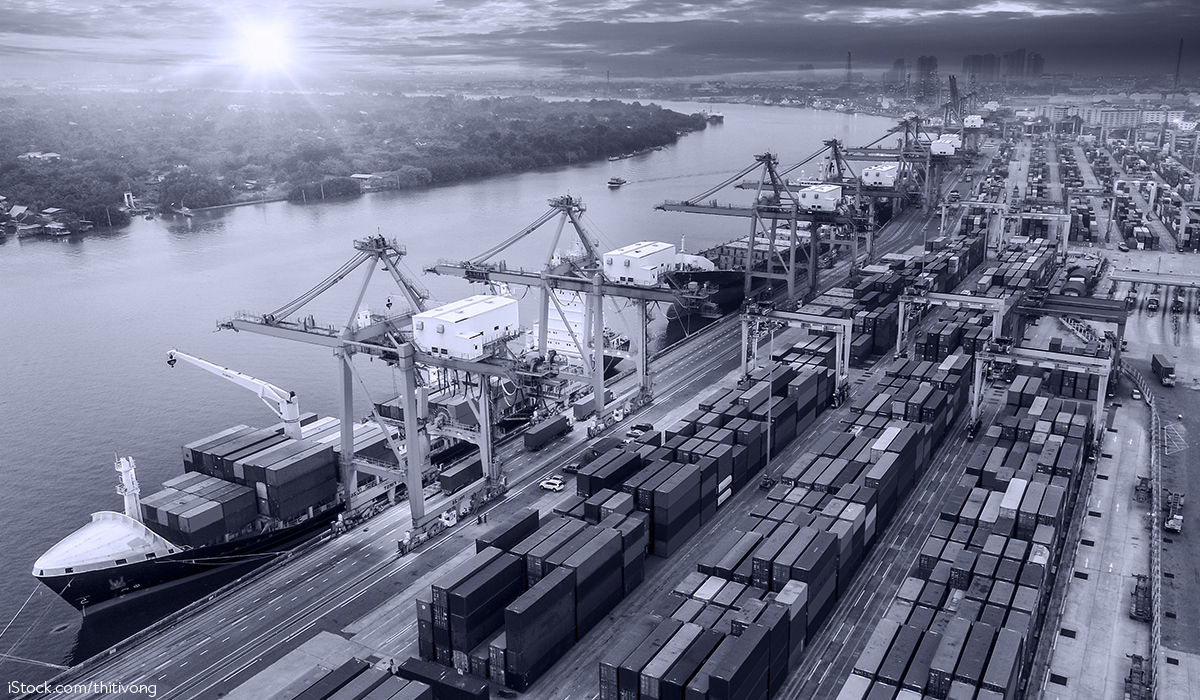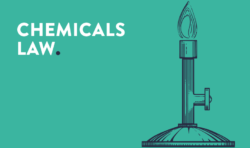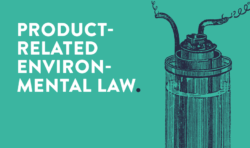Adjustments are imminent to the key EU regulations designed to ensure that companies in the European Union (EU) move towards climate neutrality, human rights and environmental protection. In addition, according to the agreements reached by the SPD and CDU in their coalition agreement, changes are also planned at national level, particularly with regard to the Supply Chain Due Diligence Act (LkSG). The proposed changes come against the backdrop of a weakening economy and accelerating global warming. On the 15.04.2025, the EU’s Copernicus service and the World Meteorological Organisation (WMO) published their report ‘European State of the Climate’. According to the report, Europe is the fastest warming continent and therefore particularly affected by climate change.
This article provides an overview of the changes already adopted and planned as part of the OMNIBUS initiative (see A.), the expected changes to the LkSG (see B.) and the associated opportunities and risks for competitiveness, environmental protection and human rights (see C.).
A. OMNIBUS initiative
The OMNIBUS initiative was publicly presented by the EU Commission on the 26.02.2025. According to the Commission, the background to this is the changed geopolitical world situation, which has made changes to essential instruments for sustainable corporate governance necessary. In particular, it is important to simplify EU regulations and thus increase the competitiveness of companies, as freed-up capacity could be reinvested. This should also bring the two concerns of ‘competitiveness’ and ‘climate protection’ closer together. The legal acts affected by the proposals, which in turn directly affect companies and are therefore of interest in this article, are Directive (EU) 2022/2464 (CSRD) (see I.), Directive (EU) 2024/1760 (CSDDD) (see section II), Regulation (EU) 2023/956 (CBAM) (see section III) and Regulation (EU) 2020/852 (Taxonomy Regulation). Despite ongoing discussions, Regulation (EU) 2023/1115 (EUDR) is not covered by the initiative, even though the EU Commission is also seeking changes here.
The OMNIBUS initiative – insofar as it is directly relevant to companies – is essentially divided into three Commission proposals:
With Commission proposal COM (2025) 80 final, the Commission intended to postpone the date of application of the CSRD and CSDDD. The proposal was adopted unchanged by the EU Parliament on 03.04.2025 and subsequently by the Council of the EU on 14.04.2025 and published in the Official Journal of the EU on 16.04.2025 (Directive (EU) 2025/794).
The Commission proposal COM (2025) 81 final provides for changes to the content of the CSRD and CSDDD in order to reduce and simplify the obligations imposed on companies by the legal acts. The proposal has been forwarded to the Council of the EU in accordance with the ordinary legislative procedure and is to be given priority treatment by the institutions.
Finally, the Commission proposal COM (2025) 87 refers to the amendment of the CBAM with the aim of increasing the efficiency of the mechanism, among other things by simplifying reporting requirements for importers. This proposal is also at the start of the ordinary legislative procedure.
I. CSRD
The CSRD is itself a directive amending Directive 2013/34/EU (the Accounting Directive), Directive 2004/109/EC (the Transparency Directive), Directive 2006/43/EC (the Audit Directive) and Regulation (EU) No. 537/2014 (EU Audit Regulation). Its aim is to inform investors, consumers and civil society about a company’s sustainability performance. This should enable informed decisions to be made about investments or the use of services. To this end, companies within the scope of application are required to disclose the risks and opportunities for the company arising from social and environmental issues. Reporting is carried out in accordance with the European Sustainability Reporting Standard (ESRS) and must be verified to a certain extent by auditors. The CSRD must be transposed into national law.
With the adoption of Directive (EU) 2025/794, the reporting requirements introduced by the CSRD will apply to companies that are not already covered by the scope of the Directive for the 2024 financial year, depending on the company, from 01.01.2027 or 01.012028, one year later than previously planned.
The Commission’s draft COM (2025) 81 final essentially provides for the following changes to the CSRD:
- The personal scope is to be limited to companies with more than 1,000 employees that either have a turnover of EUR 50 million or a positive balance sheet of EUR 25 million. According to the Commission, this will reduce the number of companies within the scope by 80%. At the same time, this is intended to align the scope with the CSDDD in order to harmonise the regulations more closely (amendment to Art. 19a of the Accounting Directive).
- All companies outside the scope of application may refer to a voluntary standard to be adopted by the Commission based on the ‘Voluntary Sustainability Reporting Standard for non-listed SMEs’ (VSME) published in December 2024 for voluntary reporting. This should also be the maximum amount of information that companies within the scope of the Directive may request from their exempt business partners along the supply chain in order to fulfil their own reporting obligations (amendment to Art. 19a of the Accounting Directive).
- The sector-specific reporting standards that are currently still pending will not be adopted. Instead, the existing ESRS will be revised. In particular, a significant reduction in the data points required is being sought (amendment to Art. 29b of the Accounting Directive).
- Voluntary reporting by companies with more than 1,000 employees and less than EUR 450 million in turnover in accordance with the Taxonomy Regulation. If they wish to report in accordance with the Taxonomy Regulation, they must disclose their turnover and certain key figures, while other key figures are only reported on a voluntary basis. According to the Commission, this eliminates the costs of reporting under the Taxonomy Regulation for these companies. The background to this provision is likely to be that reporting under the Taxonomy Regulation on a voluntary basis continues to be subject to certain minimum standards (introduction of Art. 19b of the Accounting Directive).
II. CSDDD
In the case of the CSDDD, Directive (EU) 2025/794 postponed the date of application for the largest companies by one year, meaning that the first companies will be required to comply with the requirements from the 26.07.2028. The CSDDD must be transposed into national law.
The CSDDD aims to ensure sustainable and responsible conduct with regard to human rights and environmental impacts in companies and along their supply chains. Key obligations include identifying and preventing potential and actual human rights violations and negative environmental impacts of the company itself and within its supply chain. A climate transformation plan must also be adopted and implemented that is consistent with the Paris Climate Agreement.
The Commission’s draft COM (2025) 81 final essentially provides for the following changes to the CSDDD:
- In future, companies will only be required to exercise due diligence with regard to their own activities and those of their direct suppliers (known as the Tier 1 approach). Only in the case of ‘plausible information’ about negative impacts of business activities on indirect business partners must these be identified and mitigated or prevented. According to the Commission, ‘plausible information’ is, for example, information that clearly indicates that the direct business partner was only used as an intermediary to circumvent human rights and environmental obligations. However, it should still be ensured that the company’s own code of conduct is complied with along the supply chain (amendment to Art. 8 CSDDD).
- The definition of stakeholders is limited to employees and their representatives, as well as individuals and communities whose rights and interests could be directly affected by business activities. At the same time, companies will only have to involve ‘relevant’ stakeholders in future, rather than all potentially relevant stakeholders (amendment to Art. 3 para. 1 lit. n) and Art. 13 CSDDD).
- Companies will in future only have to assess and monitor the implementation, effectiveness and adequacy of their measures to comply with due diligence obligations every five years instead of annually (amendment to Art. 15 CSDDD).
- In future, there will no longer be a minimum amount for penalty payments. Instead, the Commission intends to adopt guidelines on the imposition of penalty payments to ensure that they are consistent with the factors to be taken into account in the event of a breach (amendment to Art. 27 CSDDD).
- The obligation to draw up a climate transformation plan will be retained. However, in future it will not have to be implemented, but will merely have to contain measures for implementation (amendment to Art. 22 CSDDD).
- The EU-wide civil liability regime is to be abolished. Trade unions and NGOs will also no longer be empowered to enforce claims for damages on behalf of natural persons. A civil claim for damages will therefore only be possible if provided for under national law (amendment to Art. 29 CSDDD).
- The Commission is to be required to publish and update best practices and guidelines on compliance with due diligence obligations every six months (amendment to Art. 19 CSDDD).
III. CBAM
The aim of the regulation is to reduce greenhouse gas emissions, levy a fair price for CO2 emissions from the production of CO2-intensive goods imported into the EU, and promote cleaner industrial production through a method for calculating grey emissions in line with the Paris Agreement and the EU’s ‘Fit for 55’ package. The main obligation to date is to report the direct and indirect greenhouse gas emissions of goods contained in imports into the EU. From 2026, CO2 certificates must be purchased, each of which ‘represents’ a certain amount of greenhouse gases. If a product whose production has resulted in indirect or direct emissions is then imported into the EU, the corresponding amount of CO2 certificates must be surrendered upon import. This will make the import of greenhouse gas-intensive products from outside the EU more expensive in the future.
The Commission’s draft COM (2025) 87 essentially provides for the following changes to the CBAM:
- The date of application for the mandatory purchase of allowances for imports of goods within the scope of the Regulation is postponed by one year to February 2027 (amendment to Art. 1 para. 14 CBAM).
- Importers of small quantities of goods covered by CBAM whose imports account for only a very small proportion of the greenhouse gas emissions contained in those goods will be exempt from the regulation (amendment to Art. 1 para. 1 CBAM).
- Reporting requirements for importers within the scope of the regulation will be streamlined. This applies in particular to the approval procedures before the national authorities and the Commission, the collection of data in third countries, the procedures for determining the greenhouse gas emissions contained and the possibility of claiming that a CO2 price has already been paid in third countries (amendments to various articles).
B. LkSG
As already demanded by the CDU during the election campaign, there are to be changes to the LkSG. Specifically, the coalition agreement states
‘In addition, we are abolishing the national supply chain due diligence law (LkSG)’ (line 1909).
However, if one reads the lines following this quote, this is probably not literally the case. The LkSG is to be replaced by the CSDDD, which is to be transposed into national law in a ‘bureaucracy-free and enforcement-friendly’ manner. With regard to the LkSG, it is stated that the reporting obligations are to be completely abolished with immediate effect. However, the statutory due diligence obligations will continue to apply, even if no sanctions are imposed. The only exception will be ‘massive human rights violations,’ which will continue to be punished.
It therefore remains to be seen what the changes will actually look like. However, it is not to be expected that the law will be completely abolished and that the responsible Federal Office for Economic Affairs and Export Control (BAFA) will have to reassign all staff in this area of responsibility, but rather that it will continue to work on the matter and draw up guidelines, such as the recent information sheet on industry initiatives and antitrust law.
C. Assessment and outlook
Any changes resulting from the OMNIBUS initiative are now dependent on agreement between the Council, the EU Parliament and the Commission. In any case, Directive (EU) 2025/794 has given the legislator a little more time, which is also needed due to the sometimes widely divergent positions among EU member states and within the Parliament. In this context, it will be interesting to see how the CDU and SPD work together in the context of Germany’s position and, in particular, how the measures are subsequently implemented at national level.
It remains to be seen whether the proposed amendments, if adopted, will succeed in better aligning competitiveness with climate and human rights protection. At first glance, competitiveness stands to benefit most by limiting the personal scope of the legal acts and reducing reporting requirements. However, due to the risks posed by climate change, the financial market in particular may continue to push for more extensive reporting requirements for smaller companies under civil law in the case of CSRD reporting. In addition, changes in the case of the CSDD could also lead to renewed legal uncertainty and, in some cases, aimless action on the part of companies. For example, the term ‘plausible information’ about human rights violations and environmental damage is open to interpretation and can mean anything from reliable knowledge to generic findings about problematic supply chain flows. The obligation to review own due diligence systems only every five years does not necessarily take into account the fact that complex compliance systems require very regular monitoring and evaluation. Finally, the ‘retreat’ to national liability regimes once again leads to a fragmented legal situation, which creates uncertainty, particularly for companies operating across the EU. On a positive note, the Commission has committed to publishing guidance every six months. This has been lacking in the past.
Do you have any questions or would you like to discuss the news with the author? Please contact Michael Öttinger and Paul Jäde.





